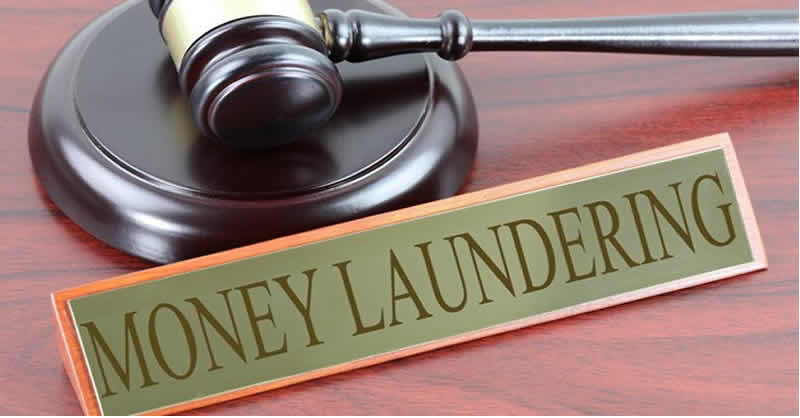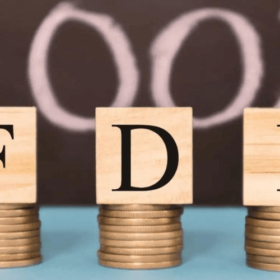The Law on Prevention and Combat of Money Laundering (PCRT) passed by the XIII National Assembly on June 18, 6 effective from January 2012, 01 - is a comprehensive legal document regulating anti-Terrorism, creating a basis for legislation to gradually improve the effectiveness of the prevention and control work in Vietnam, and to be in line with international practices and standards on prevention and control.
On September 09, 09, the Banking Inspection and Supervision Agency (SBV) and the General Department of Customs (Ministry of Finance) signed the "Regulation on coordination in exchange and provision of information between banking inspection and supervision and the General Department of Customs”.
Accordingly, the regulation sets forth the principles of coordination in exchanging and providing information; information security; information exchange and provision; form and time limit for exchanging and providing information; responsibility of the parties; focal point for receiving, requesting exchange and providing information; authority to sign exchange documents, provide information…
What is money laundering?
Money laundering is the practice of individuals or organizations that seek to convert profits or other assets obtained from criminal acts into legal assets.
Pursuant to the provisions of the Law on Anti-Money Laundering 2012 and the Penal Code 2015 (amended 2017), the acts that are defined as money laundering include:
- Participating directly or indirectly in financial, banking or other transactions in order to conceal the illegal origin of money or property due to their crimes, which they have or know or have grounds to know are from others. committed a crime;
- Using money or property that they have committed a crime that they have or know or have grounds to know is another person's commission of a criminal act to conduct business activities or other activities;
- Concealing information about the origin, true nature, location, movement or ownership of money or property due to a crime that is or knows or has grounds to know that it is committed by another person which has or impedes the verification of such information;
- Performing one of the acts specified at Points a, b and c of this Clause with respect to money or property known to be obtained from the transfer, transfer or conversion of money or property by another person. committed a crime.
- To assist organizations and individuals involved in crimes to evade legal responsibility by legalizing the origin of property obtained from crime;
- Possession of property if at the time of receiving the property, it is known that such property was obtained by committing a crime, in order to legalize the origin of the property.
Methods of money laundering in Vietnam
In general, there are four common ways of money laundering today:
Through the use of financial systems
The division and transfer of funds in order to avoid the attention of authorities on transactions of large value is one of the main methods. According to Article 3 of Decision No. 20/2013/QD-TTg dated April 18, 4 of the Prime Minister, financial institutions or individuals engaged in non-financial businesses with the function of depositing and transferring money must have responsible for reporting to the State Bank of Vietnam if they want to transfer money with a value greater than 2013 VND abroad. Therefore, objects often split the amount, transfer many times according to regulations or hire others to transfer money to avoid detection.
Through the international trading system
Set up many import-export companies to do business with foreign countries, carry out procedures for temporary import and re-export of goods to cover up illegal transportation of up to VND 30.000 billion from Vietnam to foreign countries. Money launderers turn illegal money transfers into legal ones, the origin of money is washed because it is in the name of international payments through banks. It is not necessary that this money originates from Vietnam, but can be transferred from abroad, and then by money transfer from Vietnam to abroad.
Real Estate/Purchase property
The purchase of real estate or assets of great value and high liquidity such as diamonds, handbags, luxury watches, etc. is also one of the main methods for money laundering. Objects will buy and resell the property many times, many places to legitimize the cash flow and origin.
Through virtual currency
Through virtual money is a very new method of money laundering. A virtual currency, also known as a cryptocurrency (Crypto currency) is a technical asset designed to be an intermediary exchange like real money such as Bitcoin (BTC), Binance coin (BNC)…
In Vietnam, virtual currency like Bitcoin is not recognized as a currency and is not a legal means of payment according to Vietnamese regulations. Using virtual money to launder money is much easier than the traditional methods above and traceability is very limited.
State management of money laundering prevention, combat and handling
Completing the legal framework
The draft Anti-Money Laundering Law (amended) will be submitted to the National Assembly for comments and is expected to be approved according to the process of one session at the 1th session of the XV National Assembly (October 4). One of the notable new points in the draft Law is the addition of regulations on risk assessment of countries, industries, and reporting objects on money laundering.
The State Bank of Vietnam said that the Law on Prevention and Combat of Money Laundering passed by the XIII National Assembly on June 18, 6 took effect from January 2012, 01. After more than 01 years of implementing the Law on Anti-Money Laundering and its guiding documents, in addition to the achieved results, there are still shortcomings and limitations in the provisions of the law on prevention and control of money laundering. money laundering (PCRT) has affected the effectiveness of PCRT activities.
Specifically, regarding the subjects of application of the Anti-Terrorism Law, according to the current regulations, the reporting subjects of the Anti-Corruption Law include two groups: financial institutions (FIs) and organizations and individuals doing business in non-profit sectors. related finance (DNFBPs). However, there are currently a number of new activities arising such as activities related to virtual assets, providing intermediary services to connect borrowers and lenders based on technology... These activities are still in the research and completion stage, but in case the legal framework for licensing and management of these activities is promulgated, the current provisions of the Law on Anti-Corruption will not cover these activities. this new activity. These are activities with potential for money laundering because most of these activities are carried out online, so the parties involved in the transaction are highly anonymous.
Accelerate action plan
Deputy Prime Minister Le Minh Khai signed Decision No. 941/QD-TTg on the National Action Plan on prevention and combat of money laundering, terrorist financing and proliferation financing of weapons of mass destruction in the 2021-2025 period.
Coordinating in providing and sharing information among Customs, Tax authorities, and State Bank on cash flow management and traceability to bring about good results for the prevention of money laundering. Strengthening the review of import and export activities, cash transactions of large or unusual value or signs of money laundering are also promoted activities.
Information related to suspicious transactions should be transferred to a competent authority to verify, handle and take measures to block the account in case of necessity.
Enterprises in the course of business activities also need to develop or update information related to the prevention and combat of money laundering. This helps businesses reduce risks from indirectly performing or supporting suspicious transactions, limiting the possibility of becoming an abettor for money launderers. Thoroughly limit the use of cash in payments and transactions that need to be done through banks in order to improve information transparency and limit risks.
Enterprises in the course of business activities also need to develop or update information related to the prevention and combat of money laundering. This helps businesses reduce risks from indirectly performing or supporting suspicious transactions, limiting the possibility of becoming an abettor for money launderers. Thoroughly limit the use of cash in payments and transactions that need to be done through banks in order to improve information transparency and limit risks.









